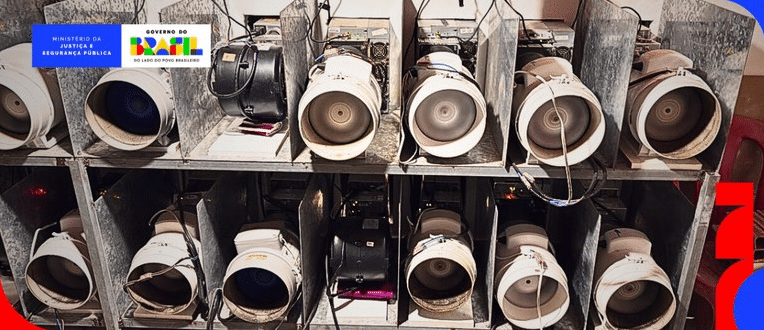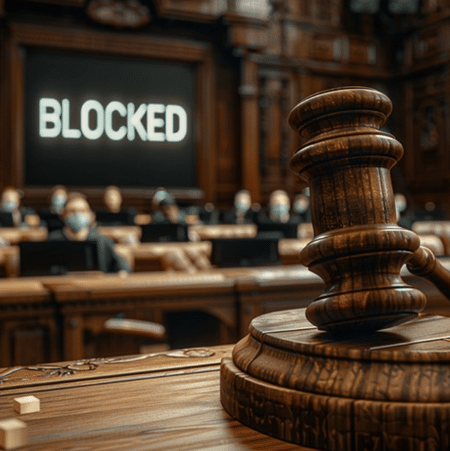 A report published by the European Commission last month assessed whether its Recommendation of May 2023 had made a difference in the fight against pirated streams.
A report published by the European Commission last month assessed whether its Recommendation of May 2023 had made a difference in the fight against pirated streams.
No significant improvement” was the downbeat conclusion.
From the perspective of top-tier Spanish football league, LaLiga, new legislation is the only workable solution, and it needs to be implemented in Europe, sooner rather than later.
LaLiga Claims to Have Slashed Piracy in Half, Give or Take
At the same time as urgently calling for new legislation, LaLiga claims to have reduced piracy of its content in Spain by as much as 60%. This was achieved under existing legislation for the season that concluded at the end of the summer. A 40% reduction, the lower figure previously cited by LaLiga, would still be unprecedented.
Yet, in the context of LaLiga’s court-ordered authority, which permits aggressive blocking of almost any site or service facilitating access to pirate streams of its premium content, such results are not absolutely impossible, at least in measured short bursts. LaLiga regularly laments Cloudflare’s refusal to prevent piracy platforms from using its services and for every week that remains the case, Cloudflare IP addresses – utilized by pirates and regular customers alike – are blocked by Spanish ISPs.
LaLiga reports that in May 2025, 38% of piracy involving LaLiga content “was distributed through Cloudflare’s infrastructure.” So at least on paper and without considering circumvention and other factors, aggressive yet effective blocking of Cloudflare would in theory be sufficient to claim a ~40% reduction in piracy rates.
The problem, which has thus far proven impossible to solve, is how blanket denial of service to piracy platforms can be executed without subjecting innocent parties to the same fate.
Internet Private Security Guard
As Head of Web Application Protection at DDoS-Guard, a Russian Internet company providing protective online services, Dmitry Nikonov understands the importance of connectivity. Operating in broadly the same market as Cloudflare, DDoS-Guard has been paying close attention to the events playing out in Spain.
LaLiga’s legal authority allows it to block Cloudflare and in the event that DDoS-Guard’s services also become a concern, there would be no legal barrier to prevent it from being treated in much the same way. The consequences of non-compliance seem to have alarmed Nikonov.
“This is happening right now, in the fall of 2025, and the scale of this phenomenon is astonishing. It seems LaLiga is beyond control,” Nikonov writes in a column for Forbes Russia.
“LaLiga can essentially apply a ‘piracy’ mask to entire ranges of addresses, often affecting endpoints that are not directly related to illegal broadcasts.”
‘Private Regulation’ of the Internet
Nikonov believes the authority delegated to LaLiga should serve as a wake-up call for the global internet. He says that the authority to interfere with internet functioning has elevated the company to a powerful position; the big question is whether anyone can do anything about it.
“LaLiga is becoming a private regulator: not a state or an independent regulator, but a commercial organization that has delegated authority to interfere with network infrastructure. Football matches have become the pretext for a large-scale experiment on the internet, testing whether there is anyone to protect its freedom,” Nikonov says.
“If the football league has such powers today, then nothing will stop other major players from acquiring them tomorrow. We’re talking about media holdings, streaming companies, and corporations for whom content is not entertainment, but a source of profit.”
Trade Barriers, No Legal Recourse
In a late October submission to the 2026 National Trade Assessment Report, Cloudflare warned the Trump administration that Spanish courts allow rightsholders to request “overbroad court orders” that cause collateral damage affecting tens of thousands of legitimate websites.
Since the Spanish government has chosen not to intervene, and “no judicial opportunity for remedy” currently exists, Cloudflare said that creates “significant trade barriers between the countries.”
Nikonov uses similar terms to those used in a Cloudflare-commissioned report released in the summer. “The internet will become fragmented,” he says, before reminding readers that state institutions won’t be responsible, but commercial organizations shielded by government.
“This scheme avoids public debate (the Spanish parliament refused to consider the issue, citing a court ruling) and instead considers the proportionality of the measures. Under the guise of copyright protection, a tool is emerging that allows commercial players to directly influence the accessibility of parts of the internet, bypassing legal proceedings.
“Access to resources will be determined not by technical standards, but by the interests of private corporations with administrative resources,” he warns.
More Powerful Tools Than Previously Reported?
Nikonov suggests that more powerful tools are being deployed in Spain, beyond simple DNS blocking. He claims that a key role belongs to the National Telecommunications Market Commission (CNMC), which, at the behest of LaLiga issues “mandatory directives” to all Spanish ISPs, urging “the fastest possible compliance.”
“[This] effectively forces them to implement DNS and BGP filtering. Border Gateway Protocol is the primary dynamic routing protocol on the internet,” he continues.
A phrase often used to convey the importance of BGP is simple but effective: BGP is the glue that holds the internet together. That’s not overblown or alarmist; but some would argue that meddling with it is.
“As a result, telecom operators are becoming the enforcers of state anti-piracy policies. What we’re facing is no longer an isolated failure, but a testing of a model that sets a precedent for new internet governance — a private corporation, through the regulator, gains de facto access to leverage over network infrastructure.”
Regulation and Using the Same System For ‘Something Else’
It’s possible that at some point there will be calls for site blocking to be regulated, but according to Nikonov, some may welcome that with open arms.
“[M]odern digital ecosystems are structured in such a way that anyone who gains access to regulatory levers automatically gains power over the infrastructure used by millions of people. In other words, the internet today is no longer a distributed network, but a set of control points, each of which becomes a juicy target,” he notes.
“And if today this point is used to protect football broadcasts, tomorrow it will be used for something entirely different.”
From: TF, for the latest news on copyright battles, piracy and more.
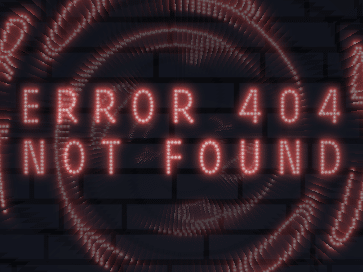 After years of uncontrolled piracy, in 2019 authorities in Brazil
After years of uncontrolled piracy, in 2019 authorities in Brazil 
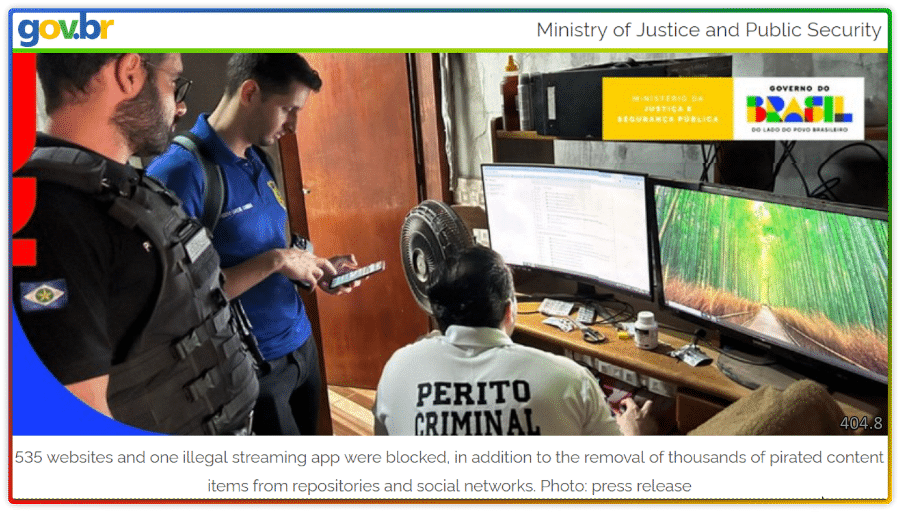
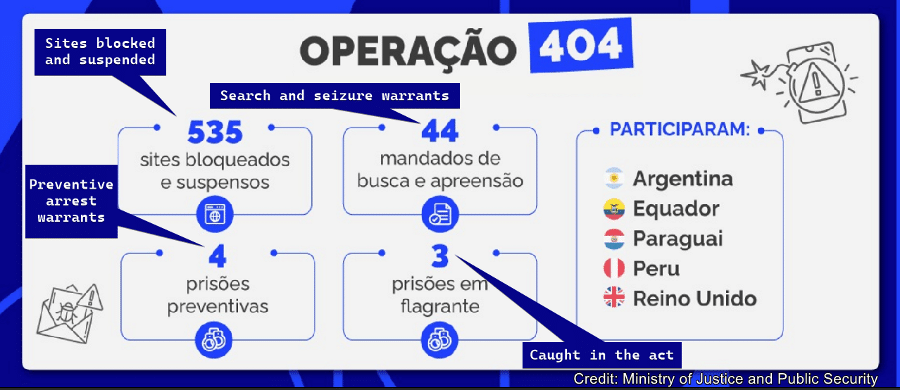
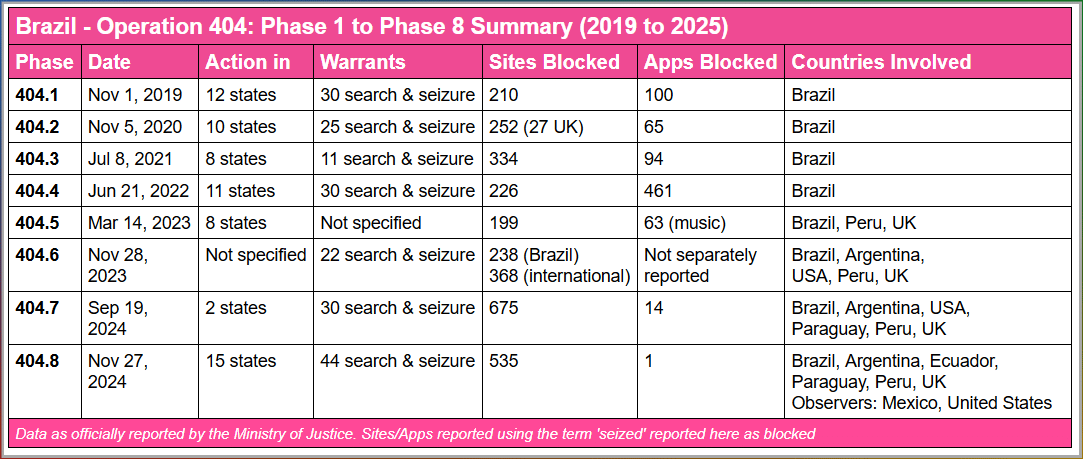
 Described by the MPA, Premier League and other rightsholders as a priority piracy threat, a set-top box available to buy right now on popular markets, initially sounds like an attractive buy.
Described by the MPA, Premier League and other rightsholders as a priority piracy threat, a set-top box available to buy right now on popular markets, initially sounds like an attractive buy.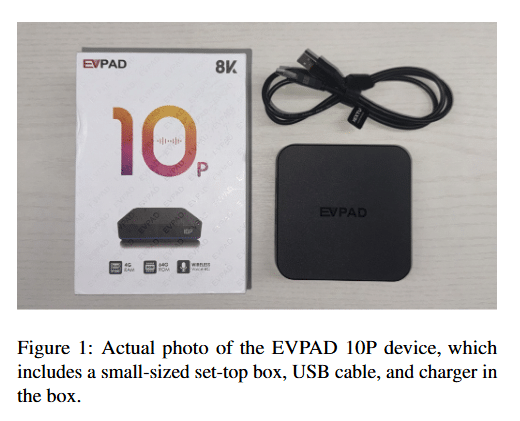 “Interestingly, during the installation process from such unknown sources, the service applications are installed seamlessly without requiring any additional user interaction or explicit permissions,” the researchers report.
“Interestingly, during the installation process from such unknown sources, the service applications are installed seamlessly without requiring any additional user interaction or explicit permissions,” the researchers report. 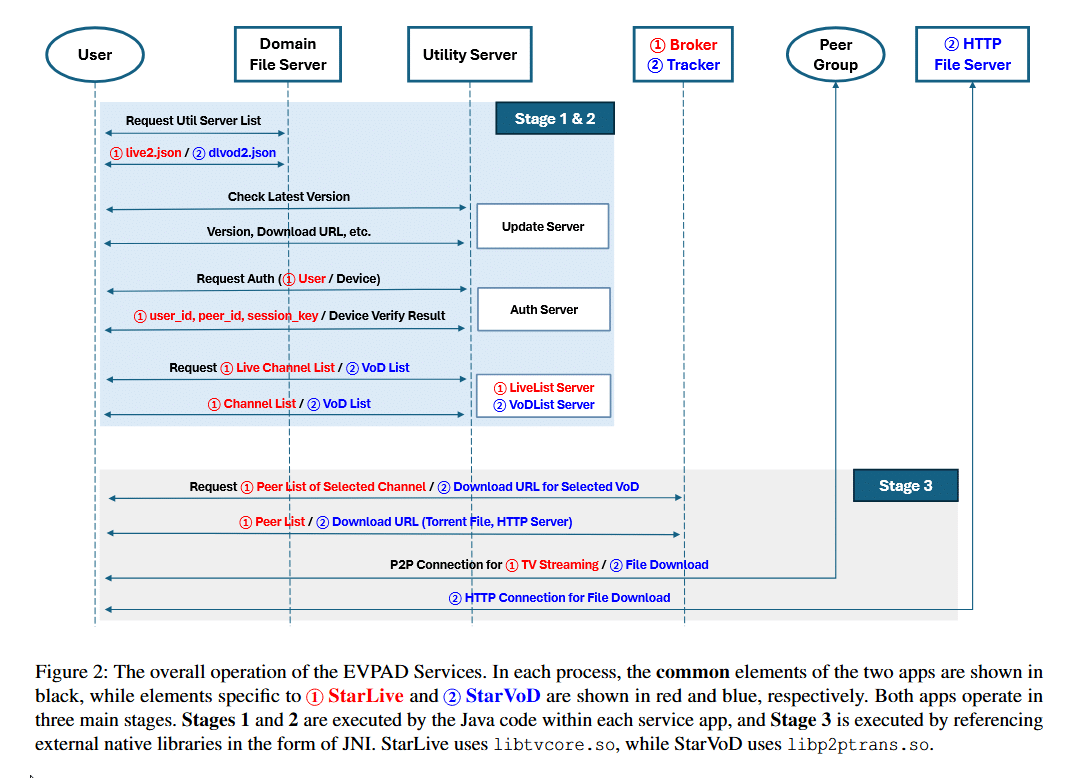
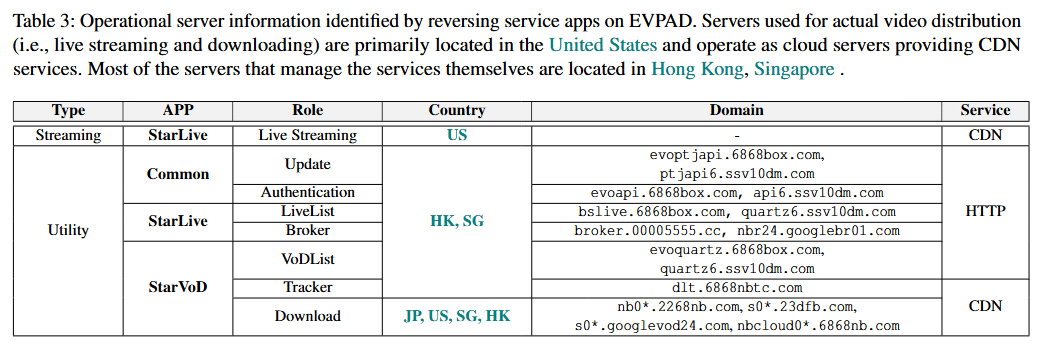
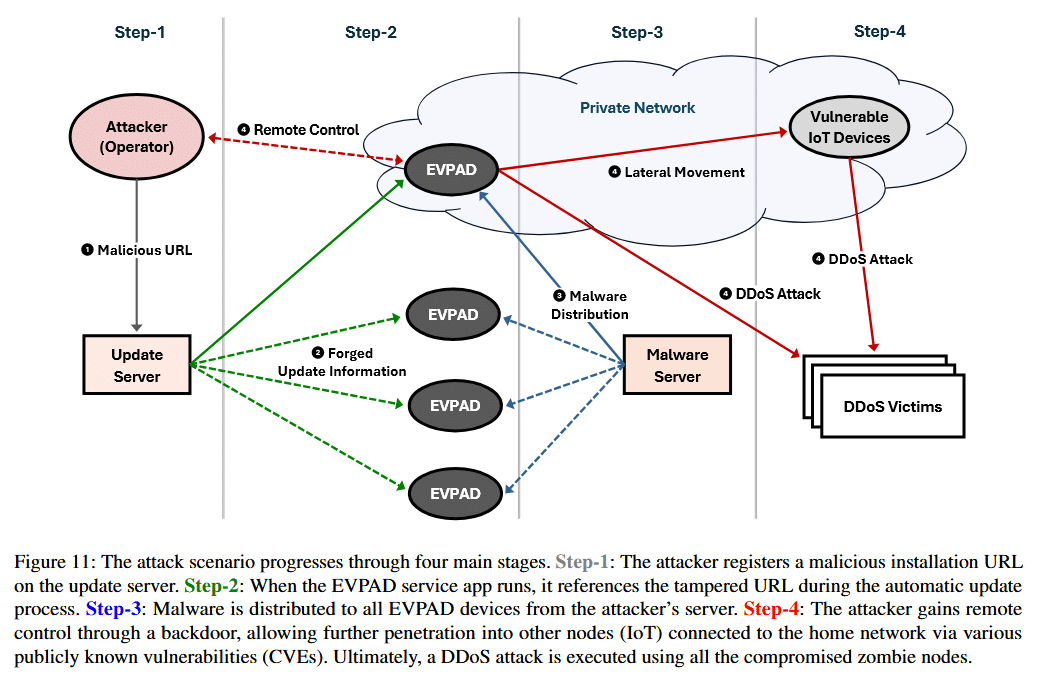

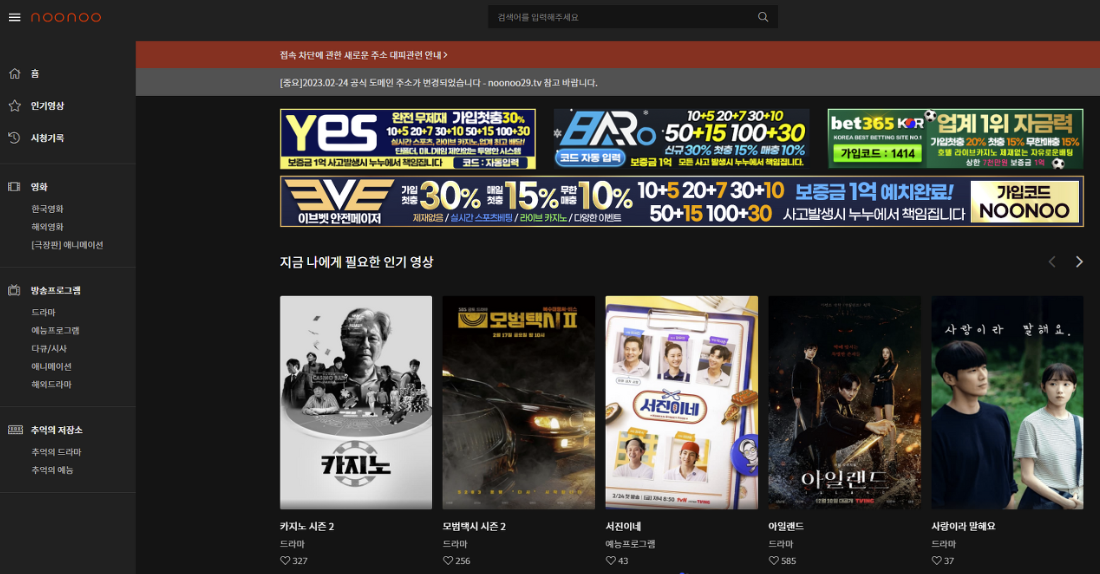


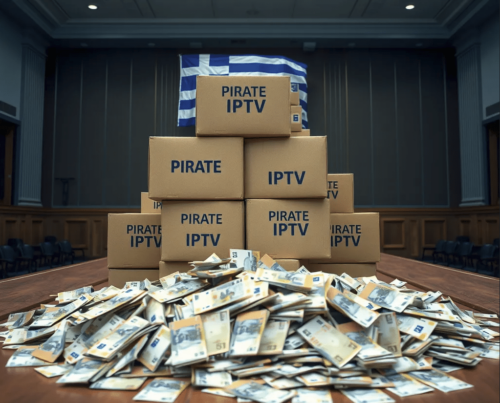
 For years, powerful rightsholders and media groups have demanded urgent and decisive action from the European Commission to tackle IPTV piracy of live sports and events.
For years, powerful rightsholders and media groups have demanded urgent and decisive action from the European Commission to tackle IPTV piracy of live sports and events. Services offered by U.S tech giant Cloudflare improve the performance and security of millions of websites, amounting to a significant contribution towards the health of today’s internet.
Services offered by U.S tech giant Cloudflare improve the performance and security of millions of websites, amounting to a significant contribution towards the health of today’s internet.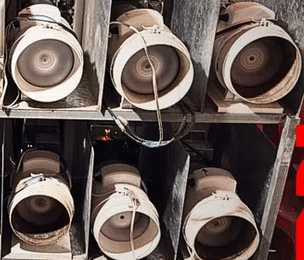 Brazil’s Special Task Force to Combat Organized Crime (Gaeco), part of the Public Prosecutor’s Office of Ceará (MPCE), carried out a large operation on Tuesday targeting individuals and companies believed to be behind several pirate streaming platforms.
Brazil’s Special Task Force to Combat Organized Crime (Gaeco), part of the Public Prosecutor’s Office of Ceará (MPCE), carried out a large operation on Tuesday targeting individuals and companies believed to be behind several pirate streaming platforms. 